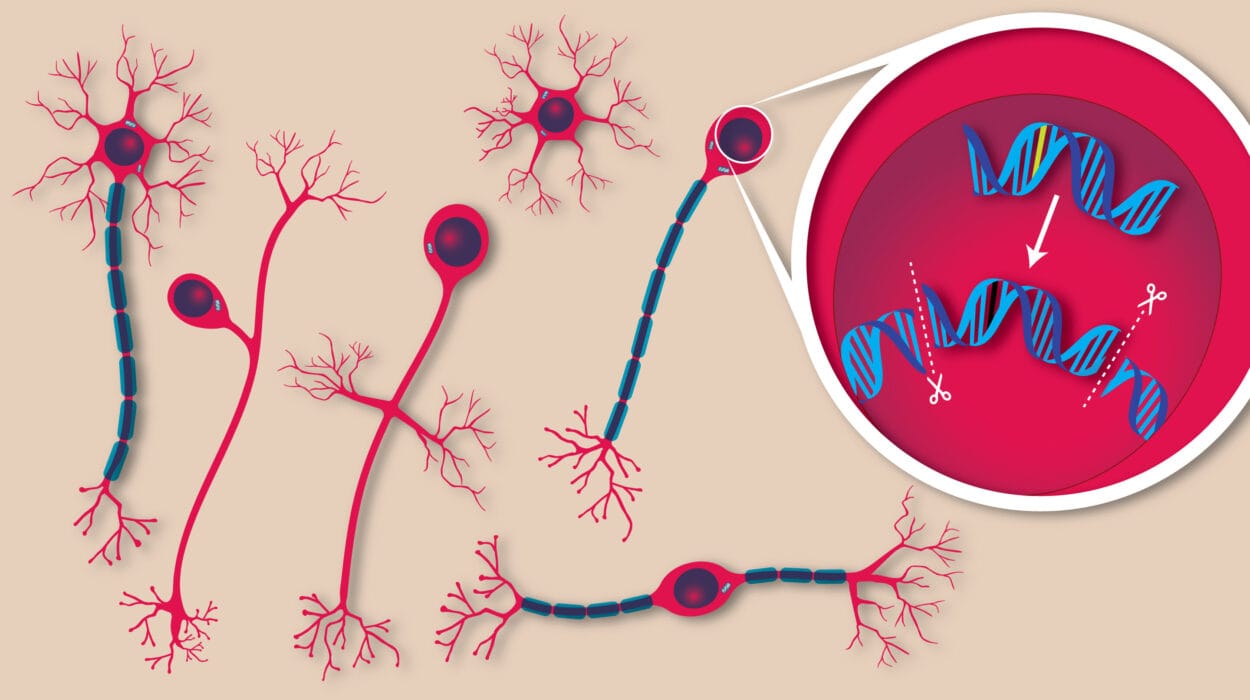The brain is the most extraordinary organ in the human body. It is the seat of our thoughts, our emotions, our creativity, our identity, and our memories. It is what makes us who we are. Yet, like every part of the body, the brain changes with time. As we age, memory can fade, focus can weaken, and mental sharpness can decline. But here’s the inspiring truth: while aging is inevitable, how we age is not fixed.
Modern science shows us that the brain is not a rigid, unchanging machine. Instead, it is wonderfully adaptable. Thanks to a property called neuroplasticity, the brain can form new connections, strengthen old ones, and even grow new neurons throughout life. In other words, we can actively keep our brains young, healthy, and sharp well into old age.
The question is: how? What habits truly make a difference, and which ones are just myths? Fortunately, researchers around the world have been unraveling this mystery. From lifestyle choices to daily practices, science has uncovered strategies that can preserve and even enhance brain health.
Here are the 10 best, science-backed ways to keep your brain young, explained in detail and written to spark both your curiosity and your motivation.
1. Stay Physically Active
When we think of exercise, we often focus on its effects on the body—toned muscles, strong bones, and improved cardiovascular health. But science has consistently shown that physical activity is also one of the most powerful ways to keep the brain young.
Exercise increases blood flow to the brain, delivering oxygen and nutrients that neurons need to thrive. More importantly, it stimulates the release of brain-derived neurotrophic factor (BDNF), often called “fertilizer for the brain.” BDNF encourages the growth of new neurons and strengthens synaptic connections, supporting learning and memory.
Research shows that people who engage in regular aerobic exercise—such as walking, running, swimming, or cycling—tend to have larger hippocampi, the brain region critical for memory. Even modest physical activity, like brisk walking for 30 minutes a day, has been linked to a reduced risk of dementia and cognitive decline.
It doesn’t have to be extreme. Consistency matters more than intensity. Dancing, yoga, gardening, or simply taking the stairs instead of the elevator can keep your brain energized. The message is clear: moving your body keeps your mind moving too.
2. Nourish Your Brain With the Right Foods
The brain is a hungry organ. Though it represents only about 2% of body weight, it consumes nearly 20% of the body’s energy. What we eat has a profound impact on brain health, influencing memory, mood, and long-term resilience against aging.
One of the most scientifically backed approaches is the Mediterranean diet, rich in fruits, vegetables, whole grains, legumes, nuts, fish, and olive oil. Studies show that people who follow this diet have a lower risk of Alzheimer’s disease and cognitive decline.
Specific foods have earned the title of “brain foods”:
- Fatty fish like salmon, sardines, and mackerel provide omega-3 fatty acids, essential for building brain cell membranes.
- Blueberries are packed with antioxidants that protect neurons from oxidative stress and may delay brain aging.
- Leafy greens like spinach and kale are loaded with folate and vitamin K, linked to slower cognitive decline.
- Nuts and seeds, especially walnuts, provide healthy fats and vitamin E, a powerful antioxidant.
- Dark chocolate, in moderation, contains flavonoids that boost blood flow to the brain and improve memory.
On the flip side, diets high in processed foods, sugar, and unhealthy fats accelerate brain aging. Choosing whole, nutrient-dense foods is not just good for your body—it’s a daily gift to your mind.
3. Keep Learning and Challenging Your Mind
The brain thrives on challenge. Just as muscles weaken without use, the brain becomes sluggish when it is not stimulated. Lifelong learning is one of the most powerful ways to keep your mind sharp.
Studies show that people who engage in mentally stimulating activities—such as reading, solving puzzles, playing an instrument, or learning a new language—build cognitive reserve. Cognitive reserve is like a protective buffer, allowing the brain to function well even as it faces age-related changes.
Challenging the brain creates new neural pathways and strengthens existing ones. This process is fueled by neuroplasticity, proving that the brain is never too old to adapt. Even in later years, learning something new—whether coding, painting, or playing chess—keeps the mind flexible.
The key is novelty and difficulty. Doing the same crossword puzzle every day won’t push your brain much. But stepping outside your comfort zone, tackling unfamiliar tasks, and embracing intellectual challenges will.
4. Get Quality Sleep
Sleep is not a luxury—it is a biological necessity, especially for the brain. While we sleep, the brain performs essential maintenance: it consolidates memories, processes emotions, and clears away toxins.
One of the most fascinating discoveries in neuroscience is the glymphatic system, the brain’s cleaning system that becomes highly active during sleep. It flushes out metabolic waste, including beta-amyloid, a protein linked to Alzheimer’s disease. Without adequate sleep, these toxins can build up, harming brain health.
Adults generally need 7–9 hours of quality sleep each night. Research shows that chronic sleep deprivation impairs attention, memory, and problem-solving skills, while long-term poor sleep is linked to a higher risk of dementia.
Good sleep hygiene—such as maintaining a consistent sleep schedule, keeping the bedroom dark and cool, avoiding screens before bed, and limiting caffeine intake—can make a huge difference. Sleep is not wasted time; it is the foundation of a youthful brain.
5. Manage Stress Effectively
Stress is a natural part of life, but chronic stress is toxic to the brain. Elevated levels of cortisol, the stress hormone, damage the hippocampus, the very region critical for memory and learning. Over time, unmanaged stress accelerates cognitive decline and increases the risk of mental health issues like anxiety and depression.
Science has shown that practicing stress-management techniques helps protect the brain. Mindfulness meditation, deep breathing exercises, yoga, and even short breaks in nature reduce cortisol levels and promote relaxation.
Interestingly, research on meditation reveals that it can actually change the structure of the brain. Long-term meditators have been found to have thicker cortices and more gray matter in regions linked to attention and emotional regulation.
Stress cannot always be avoided, but it can be managed. By building resilience through mindfulness and relaxation practices, we protect our brains from premature aging.
6. Stay Socially Connected
Humans are profoundly social beings, and our brains reflect that truth. Strong social connections are not only good for the heart and emotions but also for maintaining cognitive vitality.
Loneliness and social isolation are linked to faster cognitive decline and a higher risk of Alzheimer’s disease. In contrast, meaningful relationships stimulate the brain by engaging memory, language, empathy, and problem-solving.
Conversations, laughter, and shared experiences challenge the brain in unique ways. They require us to process information quickly, interpret emotions, and respond creatively. Studies have shown that people with strong social ties live longer, healthier lives and retain sharper cognitive skills.
Staying connected doesn’t always mean having a large circle of friends. What matters most is the quality of relationships. Whether through family, close friends, community groups, or volunteering, social bonds are a powerful antidote to brain aging.
7. Protect Your Brain Health
Physical safety and medical care are also critical in keeping the brain young. Head injuries, strokes, and untreated medical conditions can cause long-term damage. Protecting brain health means taking proactive steps in daily life.
Wearing seatbelts, using helmets during activities like biking, and preventing falls in older age are simple but essential precautions. Additionally, managing conditions like high blood pressure, diabetes, and high cholesterol is vital, as these can damage blood vessels in the brain and impair cognitive function.
Regular check-ups, maintaining a healthy weight, avoiding smoking, and limiting alcohol all contribute to brain protection. The brain is resilient, but it is also delicate, and safeguarding it ensures it can perform at its best for years to come.
8. Stimulate Your Senses and Creativity
Engaging the senses—sight, sound, touch, taste, and smell—can awaken the brain in surprising ways. Novel sensory experiences light up different brain regions and encourage new neural connections.
Art, music, and creative activities are especially powerful. Playing an instrument, painting, writing, or even cooking with new flavors challenges the brain to integrate multiple senses and skills. Studies show that engaging in creative activities not only enhances cognitive function but also provides emotional fulfillment and resilience against aging.
Music, in particular, has profound effects on the brain. Listening to music can stimulate memory, and learning to play an instrument strengthens attention, coordination, and problem-solving. In fact, music therapy is being used to help patients with dementia recover lost memories and reconnect with loved ones.
Creativity is not reserved for the “talented”—it is a way of exercising the brain’s flexibility, imagination, and adaptability, all of which help keep it young.
9. Train Your Brain Like a Muscle
Just as physical exercise strengthens the body, mental exercise strengthens the mind. Cognitive training and brain games are increasingly recognized as valuable tools for preserving mental sharpness.
Activities such as memory games, logic puzzles, Sudoku, chess, and problem-solving tasks stimulate different areas of the brain. They improve attention, processing speed, and executive function. Digital apps designed for brain training have shown promise, though results vary depending on consistency and difficulty level.
The key is diversity and challenge. Trying new games, learning strategies, and adapting to unfamiliar rules all push the brain to adapt and grow. Like muscles, the brain responds to effort—it strengthens when it is challenged.
10. Embrace a Positive Outlook and Purpose in Life
Perhaps one of the most surprising scientific findings is the impact of attitude and purpose on brain health. Optimism, resilience, and a sense of meaning in life have been linked to better cognitive function and a lower risk of dementia.
A positive outlook reduces stress, improves health behaviors, and encourages engagement with life—all of which support brain vitality. Studies have shown that people who feel their lives have purpose are more likely to maintain sharp minds as they age.
Purpose does not have to be grand. It can be found in relationships, hobbies, community service, or personal growth. The act of pursuing meaning stimulates motivation, learning, and emotional health, all of which nourish the brain.
Conclusion
The brain is a marvel, capable of lifelong growth and renewal. Science shows us that keeping it young is not about a single magic pill or secret but about embracing a holistic lifestyle that nurtures body, mind, and spirit.
From physical exercise and nourishing foods to sleep, stress management, social bonds, creativity, and purpose, each of these strategies weaves together to form a protective shield against cognitive decline.
Aging is inevitable, but losing your mental spark doesn’t have to be. By making conscious choices today, you can keep your brain sharp, curious, and vibrant for decades to come. After all, the best way to honor the gift of life is to keep your most precious organ—the brain—young and alive with possibility.






